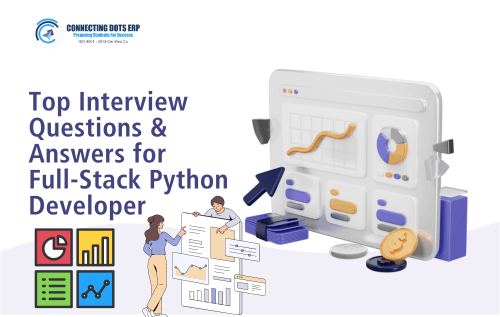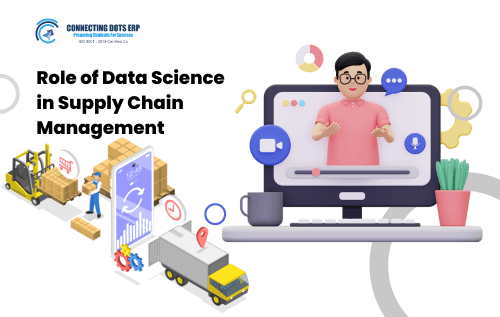What Are the 3 Major Challenges in SAP MM?
The SAP Materials Management (SAP MM) module plays a crucial role in streamlining procurement, inventory management, and material resource planning in organizations of all sizes. While SAP MM is a powerful tool that enhances operational efficiency, it also brings with it a unique set of challenges that can hinder its full potential if not addressed properly.
For professionals aiming to gain expertise in SAP MM, understanding these challenges and mastering the solutions is key. Whether you’re enrolled in an SAP MM course in Pune or working in a real-world business environment, preparing for these issues will help you stand out as a skilled SAP MM professional.
In this extended blog, we’ll dive deeper into the three major challenges in SAP MM—complex configuration and customization, data migration and integration issues, and user adoption and change management—while also exploring more detailed strategies for overcoming them.
1. Complex Configuration and Customization
The Challenge
The primary challenge with SAP MM is the complexity involved in its configuration and customization. SAP MM is designed to fit a wide array of business needs, but tailoring the system to meet the specific requirements of an individual organization can be a highly intricate process. The configuration involves setting up multiple parameters, including pricing procedures, material types, purchasing groups, account assignments, and procurement processes.
Customizing these parameters requires a thorough understanding of both the technical aspects of the SAP MM module and the specific procurement needs of the business. Even small errors in configuration can lead to inefficiencies or costly operational delays.
Why It’s a Challenge
Every business has its own unique procurement processes, vendor management strategies, and inventory tracking needs. Configuring SAP MM to align perfectly with these requirements demands a deep knowledge of both the module’s functionalities and the business workflows. For example, configuring pricing conditions involves not just understanding SAP’s pricing engine but also the company’s contracts, rebates, and discount structures. Misconfigurations in this area could lead to inaccurate billing or lost revenue.
Additional Points to Consider
- Global vs. Local Configuration: For multinational companies, configuring SAP MM to accommodate different legal regulations, tax codes, and procurement procedures across regions can add another layer of complexity.
- Custom Developments: In some cases, the standard SAP MM features may not meet all business requirements, necessitating the development of custom workflows or reports, which can further complicate the configuration.
Solutions
- Structured Learning and Practice: Enrolling in a comprehensive SAP MM course, especially those that offer hands-on experience, is crucial for understanding the complexities of configuration. For instance, the best SAP MM training programs in Pune focus on real-world scenarios and allow students to practice configuring different aspects of the module.
- Cross-functional Knowledge: Understanding how SAP MM integrates with other modules like SAP SD (Sales and Distribution), SAP FICO (Finance and Controlling), and SAP PP (Production Planning) can help streamline the configuration process. This knowledge is essential for ensuring smooth data flow across departments.
- Use of SAP Best Practices: SAP provides a library of best practices for various industries, which can serve as a starting point for configuration. Leveraging these best practices can help reduce the time and effort needed for customization while ensuring the system aligns with industry standards.
2. Data Migration and Integration Issues
The Challenge
Migrating data from legacy systems to SAP MM is another major challenge. The process involves extracting, transforming, and loading vast amounts of data—often spread across different systems—into SAP MM. Ensuring data accuracy and consistency during this migration is critical, as even minor discrepancies can lead to significant disruptions in procurement, inventory management, and reporting processes.
Additionally, SAP MM often needs to be integrated with other systems, both within and outside the SAP landscape, such as third-party procurement or supplier management platforms. Ensuring seamless integration is critical to avoid issues like data duplication or system errors.
Why It’s a Challenge
Data migration is not just about transferring data; it’s about ensuring that the data fits perfectly into the new system while maintaining its integrity. The challenge lies in mapping old data formats to new SAP-compatible ones, cleansing inaccurate or incomplete records, and performing exhaustive testing to ensure everything functions as expected. Errors in this process can lead to incorrect inventory levels, failed procurement processes, and even financial discrepancies.
Additional Points to Consider
- Data Cleansing: Before migrating, businesses often discover that their legacy data contains inaccuracies, duplicate entries, or outdated records, which must be cleaned up.
- Cross-Module Dependencies: Data migration affects multiple SAP modules like SAP FICO and SAP SD. Errors in one module could ripple into others, complicating the migration process.
- Compliance and Governance: Businesses must ensure that their data migration adheres to industry regulations and data governance policies, especially in industries like pharmaceuticals or banking.
Solutions
- Robust Data Governance: Implement a robust data governance framework to ensure data quality before and after migration. Establishing strict guidelines for data cleansing, validation, and formatting can help avoid common migration errors.
- Automated Migration Tools: Leverage automated data migration tools provided by SAP, such as the SAP Data Services or SAP LT Replication Server, which simplify data transfer and help ensure data integrity. These tools can also automate reconciliation between the old and new systems.
- Testing and Simulation: Perform multiple rounds of testing, including mock migrations, to identify and resolve potential issues. SAP MM courses in Pune often include training on data migration best practices, helping professionals avoid critical mistakes.
3. User Adoption and Change Management
The Challenge
Even after a successful configuration and data migration, one of the most overlooked challenges in SAP MM is user adoption. The introduction of a new system often disrupts established workflows, and employees can be resistant to change. Without proper training and change management strategies, businesses may find that their workforce is not using SAP MM to its full potential, leading to underperformance and inefficiencies.
Why It’s a Challenge
SAP MM can significantly alter how procurement, inventory, and material management are handled within an organization. Employees accustomed to their previous workflows may find it difficult to adapt to the new system, leading to low morale, decreased productivity, and potential errors in operations. In many cases, organizations fail to provide adequate training, leaving employees to figure out the system on their own.
Additional Points to Consider
- Cultural Resistance: Employees may resist the new system because of a fear of job loss due to automation, or they may feel that the new processes are more complex.
- Training Costs: Extensive training programs can be expensive and time-consuming, making some businesses hesitant to invest the necessary resources.
Solutions
- Advance Training Programs: It’s essential to provide extensive training, not just for SAP MM users but also for key stakeholders like procurement managers and inventory specialists. The best SAP MM courses in Pune offer specialized modules on user training and change management to prepare professionals for these challenges.
- Phased Implementation: Instead of implementing SAP MM across the organization in one go, consider a phased approach where different departments or processes are onboarded over time. This reduces the risk of system overload and helps employees adapt gradually.
- Incentives for Adoption: Offering incentives, such as bonuses for early adopters or additional training certifications, can encourage employees to embrace the new system faster.
Conclusion
Understanding the three major challenges in SAP MM—complex configuration, data migration, and user adoption—is essential for any professional looking to excel in this field. By mastering these areas through hands-on experience, in-depth training, and a comprehensive understanding of both technical and change management strategies, you can become a highly sought-after SAP MM expert.
If you’re interested in becoming a certified SAP MM professional, enrolling in the best SAP MM course in Pune can provide you with the skills and knowledge needed to tackle these challenges head-on. Whether it’s mastering the complexities of configuration, ensuring smooth data migration, or driving user adoption, top-tier training programs will equip you with both the technical and soft skills needed to thrive in the ever-evolving world of SAP Materials Management.










